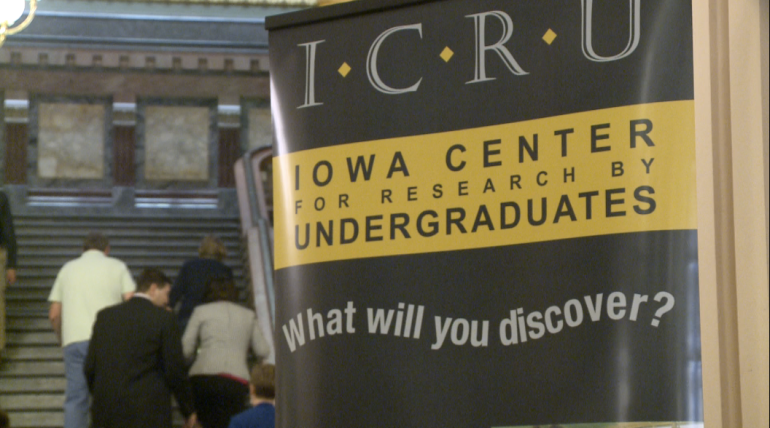DES MOINES, Iowa — College undergraduates from across the state came to present their research projects at the 10th Annual Research in the capitol Tuesday afternoon.
The 64 student presenters came from the three regent universities in Iowa: University of Iowa, Iowa State University and the University of Northern Iowa.
“This is an opportunity for our students to share their knowledge and exuberance with legislators and Regents at the Iowa Capitol and it is a special honor,” said Robert Kirby, director and founder of the event. “The biggest accomplishment is that we have been able to keep this going for 10 years now.”
Students filled the rotunda at the capitol with a variety of research topics. The fields included, but were not limited to, musical history, social sciences, local meat production and global warming.
Natalie LaLuzerne is a meteorology major from Iowa State University and said she put in over 500 hours on project. Her project was on “Contemporary and Future Extreme Winter Precipitation in the Upper Mississippi River Basin.”
“With the climate changing the way it is now, in the future, we can expect to see storms that increase in size and intensity,” LaLuzerne said.
She came to that conclusion by looking at weather models over the last 28 years in the area and analyzing the results. Laluzerne acknowledged that outcome could change since her prediction was for winters after 2040.
The event encourages the students to discover news things and Chris Winters hopes he and his team have found a way to inhibit the progression of Pulmonary Fibrosis cells from spreading in the lungs.
“It’s like a buzzer zapper for their activity,” said Winters of how the inhibitor works. “So they can’t go on and spread to cell death.”
Winters says that the results so far are promising and he hopes that this will lead to a medical adaptation to help people.
“These students have gone on to contribute to our state as doctors, educators, engineers, lawyers, nurses, and professional in various disciplines,” Kirby said.
Kirby also said that he could not imagine that event being this big and is already looking forward to what the students will come up with next year.


